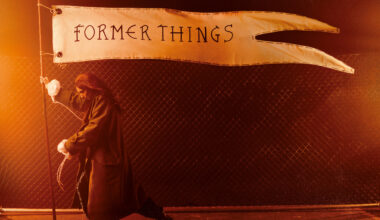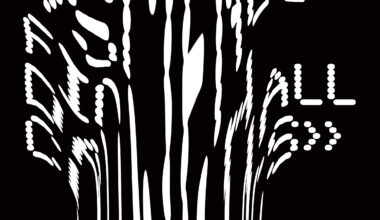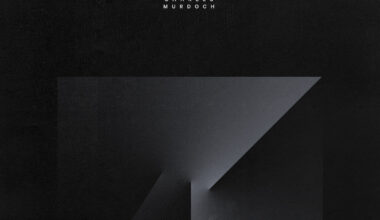Heat Treatments

You’ve got your Berlins and your Düsseldorfs. You’ve got your New Yorks and your Tokyos. You’ve got your Sheffields and your Manchesters. But if we’re thinking about the places that twirled the spiralling popularity of electronic music in the 1970s, we shouldn’t forget Kingston, Jamaica, the city that gave us a seemingly endless supply of incredible dub records, many of the best of them bearing the name Joe Gibbs.
‘100 Years Of Dub’ is an inspired title – it’s also the title of the first of the 48 tracks on this double CD, a perky overhaul of Jimmy London’s plaintive ‘Am I That Easy To Forget’ – even if it’s misleading. Everything here actually dates from between 1975 and 1978, at which point Joe Gibbs was at the top of his game, producing artists like Dennis Brown, Gregory Isaacs, Culture, Marcia Aitken, The Mighty Diamonds, Prince Far I and Trinity, releasing their records on one of his multitude of labels, and notching up more than 100 Number One hits in Jamaica in the process.
Despite his local triumphs, beyond his homeland Gibbs is probably better known for his dub excursions. Most notably for his five ‘African Dub’ albums and most particularly the truly magnificent ‘African Dub Chapter 3’, one of the records that helped turn legions of UK punks on to reggae. But while those albums have been reissued numerous times over the years, all of the cuts on ‘100 Years Of Dub’ were originally found on the B-sides of singles, as were the majority of dub versions at the time, and many of them haven’t been available for decades. Not without unwanted scuffs, scratches and skips.
Gibbs was a genius when it came to utilising the mixing desk as a musical instrument, as was his long-time engineer Errol “ET” Thompson, who started working at Gibbs’ studio in the Cross Roads district of Kingston in 1972. They always came as a pair, with a big chunk of their productions credited to The Mighty Two, and they generally operated at speed, creating tracks from other tracks in quick live takes. From the ultra-heavy ‘I Stand Accused’, a radical deconstruction of Gregory Isaacs’ ‘Babylon Too Rough’, to the rapturous ‘No Bones For The Dogs’, a madcap romp based on Alton Ellis’ ‘Why Birds Follow Spring’, what they managed to achieve with 16 channels and a smattering of basic effects is awesome.
With the invaluable help of The Professionals, a fluid outfit boasting some of Jamaica’s finest musicians of the day, it was the tight, warm, all-enveloping sound Gibbs and Thompson crafted that made their productions really stand out. And it didn’t matter whether they’d stripped something down to just the bass and drums, as with long sections of ‘Black September Version’, which is vaguely recognisable as Dennis Brown’s ‘Equal Rights’, or gone nuts with the reverb, delay and filtering, as on the reworking of Ruddy Thomas’ ‘Memories By The Score’. Select pretty much any track and the heat is on from the first beat to the last. Listen closely – and the trick is to listen extremely closely – and you’ll soon be sweating.
As well as ‘African Dub Chapter 3’, two more Joe Gibbs favourites with the punky reggae party crowd were Culture’s ‘Two Sevens Clash’ and Trinity’s ‘Three Piece Suit’ albums. ‘100 Years Of Dub’ has four Culture and four Trinity treatments and they provide some of the hottest moments. The ‘Fulfilment’ version of ‘Two Sevens Clash’ is especially strong, with wave upon wave of echo crashing in and a string of raucous pronouncements from Bojangles, a DJ who liked to toast in the style of a horse racing commentator. ‘Roots Kunta Kinte’, the B-side of Trinity’s ‘John Saw Them Coming’, meanwhile spins Bob Marley’s ‘Hypocrites’ riddim into another dimension. It features the sounds of roaring racing cars and bubbling boiling water too. What a treat.
Fast forward a little and Joe Gibbs’ career came to an abrupt end in 1983, following a legal dispute over a cover of a song by American country singer Charley Pride. It cost him a fortune. He shut down his studio and opened up a supermarket instead, employing the ever-loyal Errol Thompson as the store manager, a position ET continued to hold for much of the rest of his life. The two men returned to the music industry in the 1990s, but only briefly and with limited success. Fast forward again, this time to the 2000s, and they sadly died within four years of each other – Thompson in 2004 and Gibbs in 2008, aged 55 and 65, respectively.
‘100 Years Of Dub’ is a fascinating glimpse inside the less familiar parts of the vast back catalogue The Mighty Two left behind. OK, there are three or four weak choices – the cartoony ‘Bubbler In Money’ interpretation of Dennis Brown’s splendid ‘Money In My Pocket’, for instance – but it is a mere three or four.
Balance those against their dub versions of Marcia Aitken’s ‘Narrow Minded Man’, Prince Alla’s ‘Naw Go A Them Burial’, Sylford Walker’s ‘Burn Babylon’ and Dolphin Morris’ ‘Su-Su-Pan Rasta’, to give a few more of the highlights of this tasty collection a passing mention, and there’s no contest. None whatsoever. The heat wins every time.





